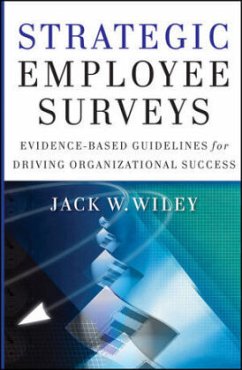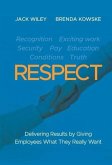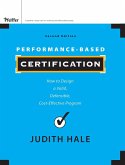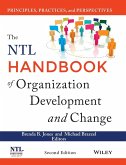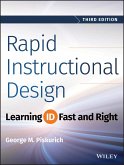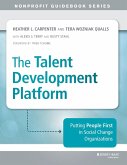In part one of the book, readers receive specific examples of how to measure safety, ethics, union vulnerability, work life balance, diversity, the drivers of employee retention and employee engagement, as well as examples of survey content needed to best predict business success. With each type of survey content, also provided will be the most recent normative results, helpful for placing results from any organization into the proper interpretative context. A reader of this book could literally design their own survey, and have confidence the survey would effectively measure their strategic purpose.
In part two, readers are provided with specific guidance on the other key component of ensuring employee survey program success: survey feedback and action planning processes. Wiley outlines a time-tested seven-step model of survey feedback and action planning, explaining each step of the model and through real-life client examples, identifying the most common pitfalls of the overall process. Readers will thus know how to navigate around these potential problems and will receive advice on how to set goals for improvement from one survey measurement to the next. This will include a review of specific goal-setting techniques. Finally, the characteristics of leadership teams whose organizations achieve sustained improvement over multiple iterations of survey measurement are identified and discussed.
Table of Contents:
Chapter 1: Introduction
Chapter 2: Employee Surveys as Warning Indicators
Chapter 3: Employee Surveys as Program Evaluation Measures
Chapter 4: Employee Surveys to Measure Employer of Choice
Chapter 5: Employee Surveys as Leading Indicators
Chapter 6: Merging "Employer of Choice" and "Leading Indicator" Survey Purposes
Chapter 7: An Overview of Survey Feedback and Action Planning
Chapter 8: Setting Goals for Improvements in Survey Results
Chapter 9: Sustaining Change
Chapter 10: Final Thoughts
In part two, readers are provided with specific guidance on the other key component of ensuring employee survey program success: survey feedback and action planning processes. Wiley outlines a time-tested seven-step model of survey feedback and action planning, explaining each step of the model and through real-life client examples, identifying the most common pitfalls of the overall process. Readers will thus know how to navigate around these potential problems and will receive advice on how to set goals for improvement from one survey measurement to the next. This will include a review of specific goal-setting techniques. Finally, the characteristics of leadership teams whose organizations achieve sustained improvement over multiple iterations of survey measurement are identified and discussed.
Table of Contents:
Chapter 1: Introduction
Chapter 2: Employee Surveys as Warning Indicators
Chapter 3: Employee Surveys as Program Evaluation Measures
Chapter 4: Employee Surveys to Measure Employer of Choice
Chapter 5: Employee Surveys as Leading Indicators
Chapter 6: Merging "Employer of Choice" and "Leading Indicator" Survey Purposes
Chapter 7: An Overview of Survey Feedback and Action Planning
Chapter 8: Setting Goals for Improvements in Survey Results
Chapter 9: Sustaining Change
Chapter 10: Final Thoughts
